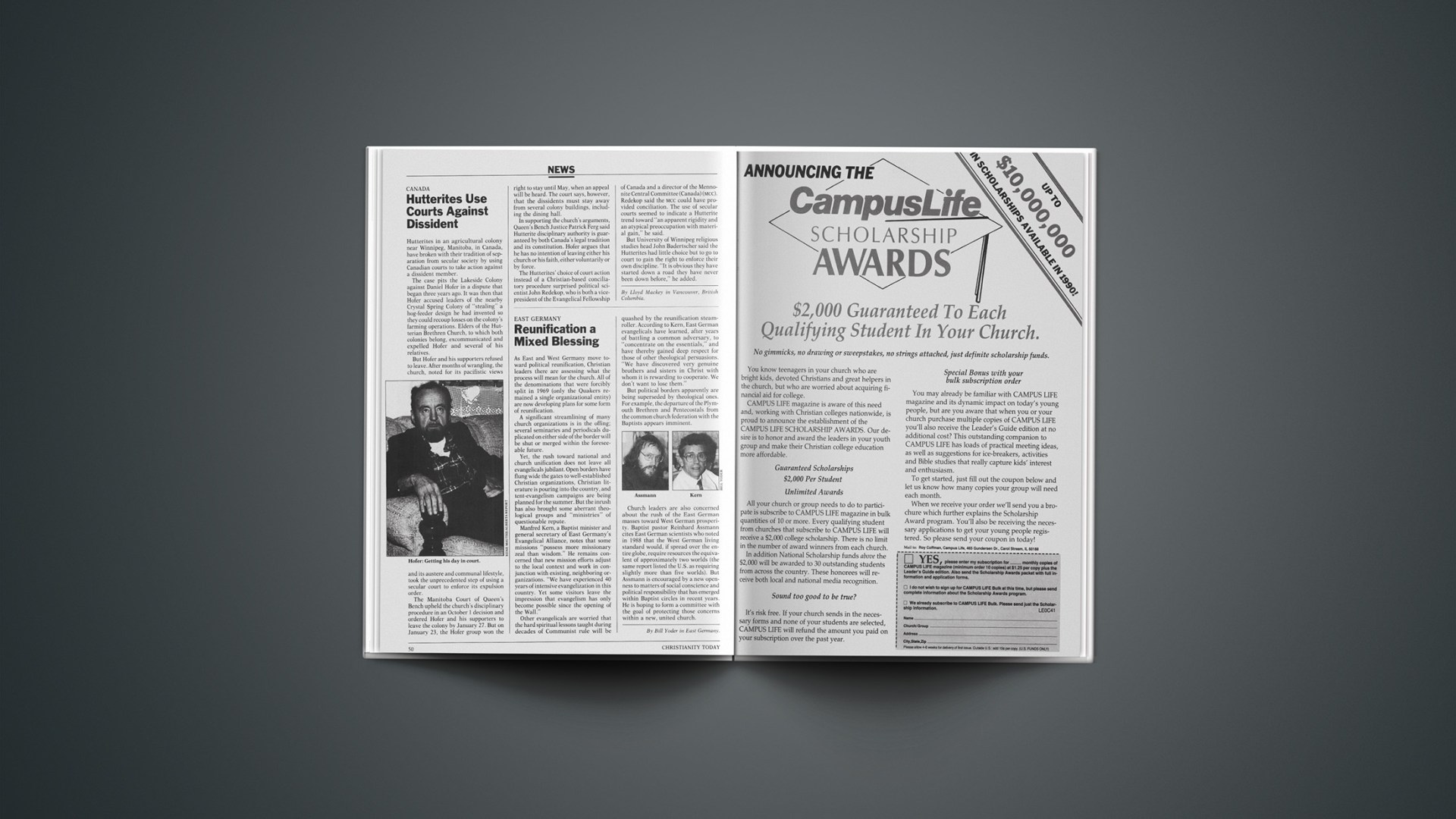As East and West Germany move toward political reunification, Christian leaders there are assessing what the process will mean for the church. All of the denominations that were forcibly split in 1969 (only the Quakers remained a single organizational entity) are now developing plans for some form of reunification.
A significant streamlining of many church organizations is in the offing; several seminaries and periodicals duplicated on either side of the border will be shut or merged within the foreseeable future.
Yet, the rush toward national and church unification does not leave all evangelicals jubilant. Open borders have flung wide the gates to well-established Christian organizations, Christian literature is pouring into the country, and tent-evangelism campaigns are being planned for the summer. But the inrush has also brought some aberrant theological groups and “ministries” of questionable repute.
Manfred Kern, a Baptist minister and general secretary of East Germany’s Evangelical Alliance, notes that some missions “possess more missionary zeal than wisdom.” He remains concerned that new mission efforts adjust to the local context and work in conjunction with existing, neighboring organizations. “We have experienced 40 years of intensive evangelization in this country. Yet some visitors leave the impression that evangelism has only become possible since the opening of the Wall.”
Other evangelicals are worried that the hard spiritual lessons taught during decades of Communist rule will be quashed by the reunification steamroller. According to Kern, East German evangelicals have learned, after years of battling a common adversary, to “concentrate on the essentials,” and have thereby gained deep respect for those of other theological persuasions. “We have discovered very genuine brothers and sisters in Christ with whom it is rewarding to cooperate. We don’t want to lose them.”
But political borders apparently are being superseded by theological ones. For example, the departure of the Plymouth Brethren and Pentecostals from the common church federation with the Baptists appears imminent.
Church leaders are also concerned about the rush of the East German masses toward West German prosperity. Baptist pastor Reinhard Assmann cites East German scientists who noted in 1988 that the West German living standard would, if spread over the entire globe, require resources the equivalent of approximately two worlds (the same report listed the U.S. as requiring slightly more than five worlds). But Assmann is encouraged by a new openness to matters of social conscience and political responsibility that has emerged within Baptist circles in recent years. He is hoping to form a committee with the goal of protecting those concerns within a new, united church.
By Bill Yoder in East Germany.










